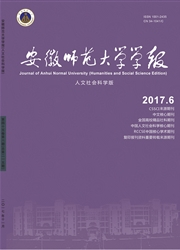

 中文摘要:
中文摘要:
在对模糊性和连锁悖论的研究中,威廉姆森先后构造了三个论证去表明:否定二值原则将导致逻辑矛盾,亦称“荒谬”。本文论证以下两个断言:(1)在一个良好设计且能得到很好证成的三值逻辑中,否定二值原则并不会导致荒谬;(2)在威廉姆森的论证中,某些推理步骤只在二值的经典逻辑中有效,而在某些非二值逻辑中无效;那些论证使用了塔斯基的“真”去引号模式,后者本身就预设了二值原则。因此,威廉姆森的三个论证几乎是直接的循环论证:在假定二值原则之后,再证明否定二值原则将导致荒谬。本文最后列出了据以反驳威廉姆森论证的一些思想,并为它们提供了简短的证成和辩护。
 英文摘要:
英文摘要:
In the study of vagueness and sorites paradoxes, Williamson constructs three arguments (DBAs for short) to show that the denial of bivalence reduces to "absurdity", viz. logical contradiction.This paper will argue for two claims about DBAs: (1) In a well--designed and well--justifiable non--bivalent logic, the denial of bivalence will not generate contradiction; (2)In Williamson;s arguments,DBAs have some steps of inference that are valid only in classic logic, but not in some non--bivalent logics, and they make use of Tar- skian Schemes "T" without quotation marks which presuppose the principle of bivalence.Finally,justify and defend the basic ideas underlying its arguments against DBAs.
 同期刊论文项目
同期刊论文项目
 同项目期刊论文
同项目期刊论文
 期刊信息
期刊信息
